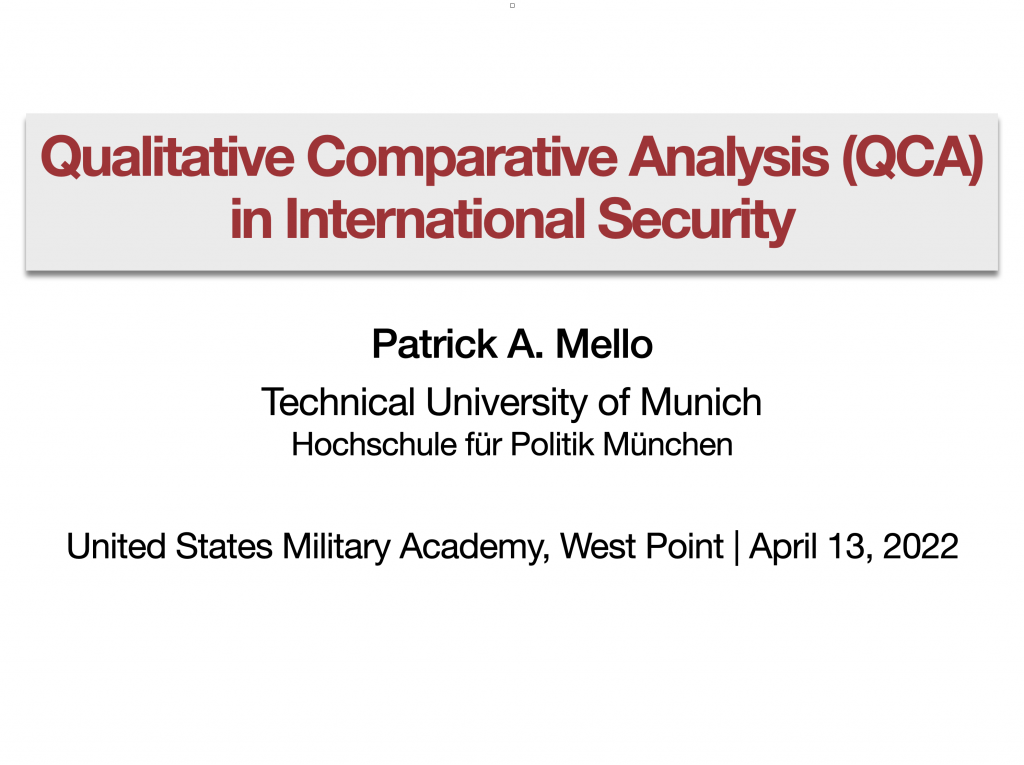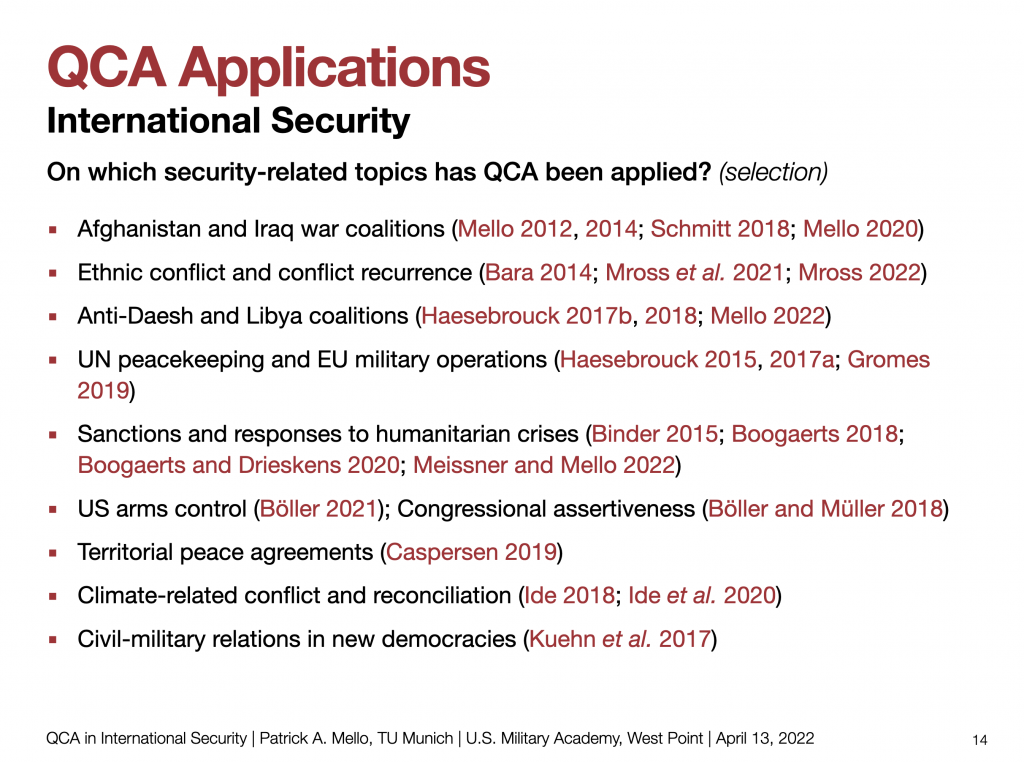QCA in International Relations: A Review of Strengths, Pitfalls, and Empirical Applications
International Studies Review published our open access article “QCA in International Relations: A Review of Strengths, Pitfalls, and Empirical Applications” (with Tobias Ide, Murdoch University, Perth). This is the first comprehensive review of QCA applications in International Relations (IR), covering empirical studies published between 1987 and 2020. The article discusses strengths and limitations of QCA and develops concise recommendations on how to improve QCA research in IR.
Abstract: Qualitative comparative analysis (QCA) is a rapidly emerging method in the field of International Relations (IR). This raises questions about the strengths and pitfalls of QCA in IR research, established good practices, how IR performs against those standards, and which areas require further attention. After a general introduction to the method, we address these questions based on a review of all empirical QCA studies published in IR journals between 1987 and 2020. Results show that QCA has been employed on a wide range of issue areas and is most common in the study of peace and conflict, global environmental politics, foreign policy, and compliance with international regulations. The utilization of QCA offers IR scholars four distinct advantages: the identification of complex causal patterns, the distinction between necessary and sufficient conditions, a middle ground between quantitative and qualitative approaches, and the reinforcement of the strengths of other methods. We find that albeit a few exceptions, IR researchers conduct high-quality QCA research when compared against established standards. However, the field should urgently pay more attention to three issues: the potential of using QCA in combination with other methods, increasing the robustness of QCA results, and strengthening research transparency in QCA applications. Throughout the article, we formulate strategies for improved QCA research in IR.

